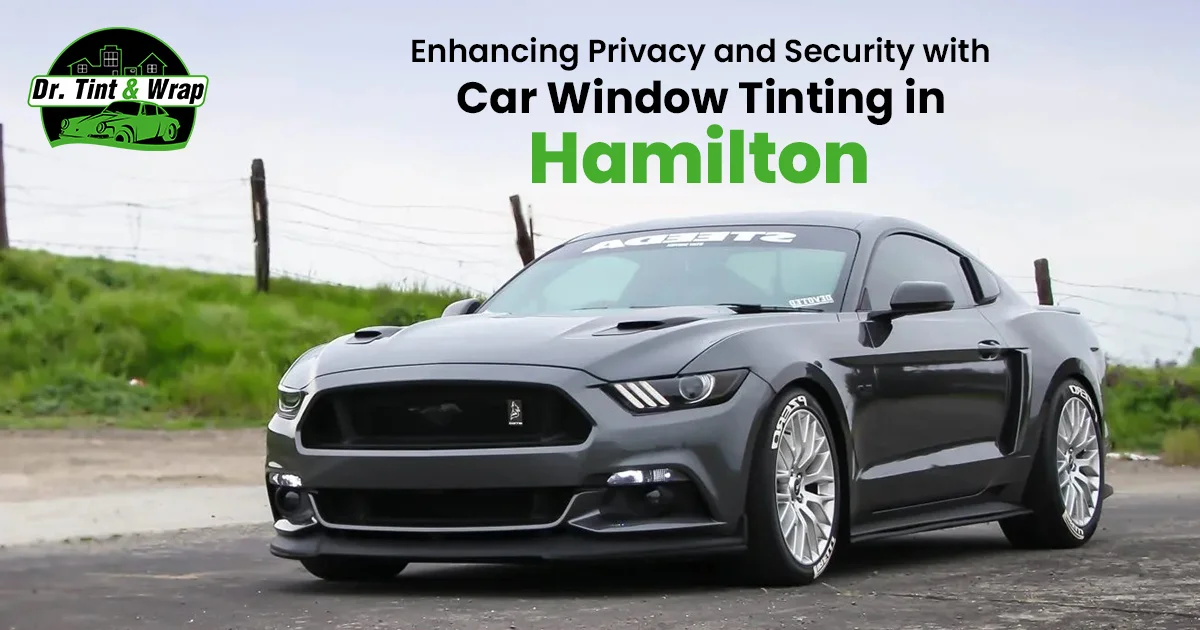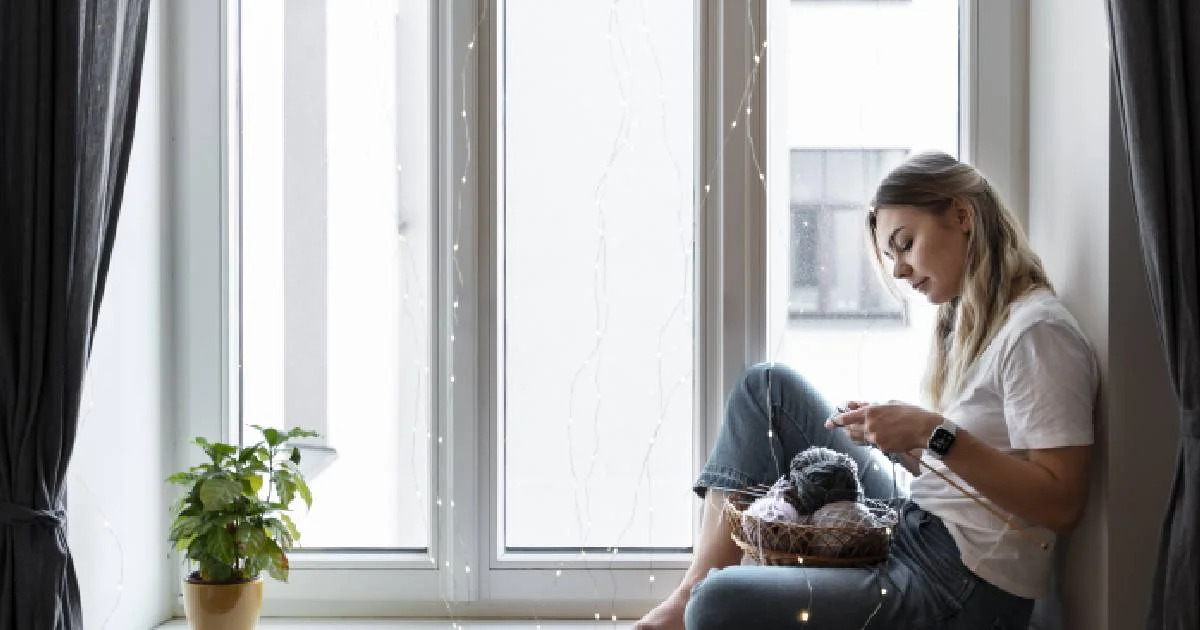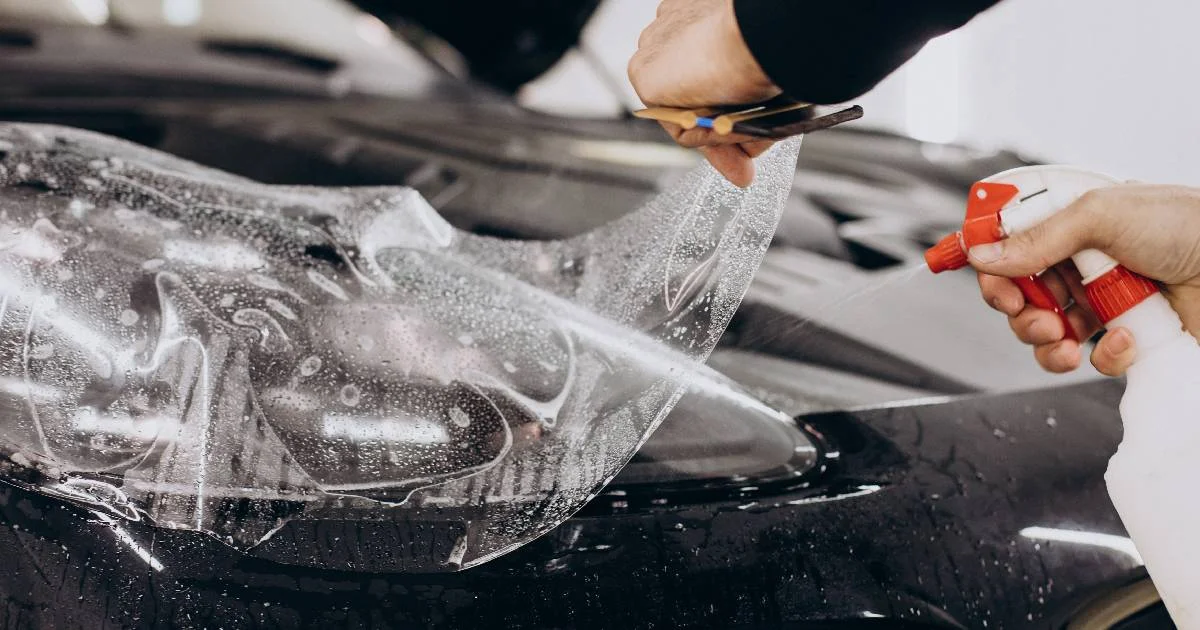
Enhancing Privacy and Security with Car Window Tinting in Hamilton
31 Jul 2023, By AdminCar window tinting has become increasingly popular in Hamilton and for good reason. Apart from its aesthetic appeal, car window tinting offers a range of benefits, including enhanced privacy and security. In this blog, we will explore how car window tinting can provide an added layer of privacy and security for vehicle owners in Hamilton. So, if you're considering tinting your car windows in this vibrant city, read on to discover the advantages and important considerations.
1. Protecting Your Privacy
Car window tinting offers a valuable shield against prying eyes. Whether you're driving through busy streets or parked in a public area, tinted windows can greatly reduce visibility into your vehicle's interior. This added privacy is particularly advantageous when you have valuable belongings or personal items that you'd rather keep out of sight.
2. Deterrence against Theft
The darker tint on car windows can act as a deterrent against potential theft. Tinted windows make it more difficult for thieves to see inside your vehicle and assess if there are any valuable items worth targeting. By concealing the contents of your car, window tinting reduces the likelihood of break-ins and thefts, providing you with an extra layer of security.
3. Protection from Harmful UV Rays
Window tinting not only enhances privacy and security but also offers protection from the harmful effects of UV rays. With New Zealand's high levels of ultraviolet radiation, prolonged exposure to the sun's rays can lead to skin damage, premature aging, and an increased risk of skin cancer. Tinted windows provide a barrier against harmful UV rays, safeguarding you and your passengers while on the road.
4. Enhanced Durability of Interior
Excessive exposure to sunlight can cause fading, cracking, and deterioration of your car's interior surfaces, including the dashboard, seats, and upholstery. Car window tinting helps mitigate this damage by reducing the amount of UV radiation that enters your vehicle. By blocking a significant portion of the sun's rays, tinted windows help preserve the condition and extend the lifespan of your car's interior components.
5. Improved Comfort and Climate Control
Hamilton's weather can be unpredictable, with scorching summers and chilly winters. Car window tinting plays a crucial role in maintaining a comfortable cabin temperature by reducing heat buildup inside your vehicle. Tinted windows minimize the penetration of solar heat, keeping the interior cooler during hot days. Moreover, they also help retain warmth during colder months, promoting a more comfortable driving experience. Car window tinting in Hamilton offers more than just aesthetic appeal. It significantly enhances privacy and security, providing peace of mind for vehicle owners. With the added benefits of protection against harmful UV rays, preservation of interior durability, and improved climate control, tinted windows are an investment worth considering. Dr Tint & Wrap Hamilton is known for delivering unparalleled car window tinting services in Hamilton. Their commitment to excellence, advanced techniques, and premium tinting products set them apart, guaranteeing customers unmatched quality and satisfaction.

Top 6 Benefits of Car Wrapping You Should Know About
31 Jul 2023, By AdminAre you looking to give your car a fresh new look while also protecting its original paint? Look no further than car wrapping at Dr. Tint & Wrap! Car wrapping, a process where a vinyl film is applied to the exterior of a vehicle, has become a popular choice among car enthusiasts, businesses, and individuals alike. In this blog, we'll explore the top benefits of car wrapping and why it's worth considering for your own vehicle.
Style and Customization - One of the primary benefits of car wrapping is the ability to customize your vehicle's appearance to your liking. With a wide range of vinyl colors, finishes, and designs available, you can create a unique and personalized look for your car. Whether you're going for a sleek and glossy finish, a matte or satin look, or even a textured design, the possibilities are endless. Car wrapping allows you to express your personal style and make your car stand out from the crowd.
Paint Protection - Another significant advantage of car wrapping is its ability to protect your car's original paint from various types of damage. The vinyl film acts as a protective barrier against scratches, rock chips, dirt, and UV rays, helping to keep your car's paint in pristine condition. This is particularly beneficial for expensive or rare vehicles, as it helps preserve their resale value and keeps them looking new for longer.
Cost-Effective - Compared to traditional painting methods, car wrapping can be a more cost-effective option for changing your vehicle's appearance. A high-quality paint job can be expensive, especially if you're looking for unique colors or finishes. Car wrapping, on the other hand, offers a more affordable alternative with similar results. Additionally, if you decide to change your car's color or design in the future, you can easily remove the vinyl wrap without damaging the original paint, making it a cost-effective and reversible option.
Time-Saving - Unlike traditional painting, which can take several days to complete, car wrapping can be done relatively quickly. Depending on the complexity of the design and size of the vehicle, car wrapping can usually be completed within a few days to a week. This means less downtime for your vehicle and less inconvenience for you, making it a time-saving option for those who want a quick and efficient way to transform their car's appearance.
Advertising and Branding - Car wrapping is not only popular among car enthusiasts but also among businesses for advertising and branding purposes. Wrapping company vehicles with branded vinyl wraps can turn them into moving billboards, creating a cost-effective and attention-grabbing way to promote your business. With the ability to customize the design and incorporate your logo, colors, and other branding elements, car wrapping can help increase brand awareness and make your business stand out on the road.
Easy Maintenance - Another benefit of car wrapping is its low maintenance requirements. Vinyl wraps are durable and easy to clean, requiring minimal upkeep. Regular washing with mild soap and water is typical all that's needed to keep the wrap looking its best. Additionally, if any damage does occur, such as a scratch or small tear, individual sections of the vinyl can be easily replaced without having to redo the entire wrap, making it a convenient and cost-effective option for long-term maintenance.
In conclusion, car wrapping offers a wide range of benefits, including style customization, paint protection, cost-effectiveness, time-saving, advertising and branding opportunities, and easy maintenance. Whether you're looking to give your personal vehicle a fresh new look or promote your business on the road, car wrapping can be a practical and visually appealing solution. Consider car wrapping as a viable option for transforming your ride with style, protection, and added benefits that will make your vehicle stand out from the crowd.

Enhance Your Privacy and Security with Home Window Tinting
31 Jul 2023, By AdminIntroduction
Home Window Tinting is a process where a thin film is applied to the windows of a residence to reduce the amount of visible light, UV rays, and heat that enters the interior. This tinting film is typically made of polyester and can come in various shades. The primary purpose is to enhance privacy and security by limiting the view into your home from the outside.
What is Home Window Tinting, and how does it enhance privacy and security?
Home Window Tinting is a process where a thin film is applied to the windows of a residence to reduce the amount of visible light, UV rays, and heat that enters the interior. This tinting film is typically made of polyester and can come in various shades. The primary purpose is to enhance privacy and security by limiting the view into your home from the outside.
How does Home Window Tinting contribute to privacy at home?
Home Window Tinting provides an additional layer of privacy by obstructing the view into your home. It allows you to enjoy natural light without compromising your privacy, making it difficult for outsiders to see the interiors of your house. This is especially beneficial for ground-level windows and homes in close proximity to neighbors or busy streets.
Can Home Window Tinting protect against harmful UV rays?
Absolutely! One of the significant benefits of Home Window Tinting is its ability to block a significant portion of harmful UV rays. This not only helps in safeguarding your skin from potential damage but also prevents fading and deterioration of your furniture, flooring, and other belongings due to prolonged exposure to sunlight.
How does Home Window Tinting contribute to energy efficiency?
Home Window Tinting can help regulate the temperature inside your home by reducing the amount of heat that enters through the windows. This means less reliance on air conditioning during hot days, resulting in energy savings. It acts as an insulator, keeping your home cooler in the summer and warmer in the winter, thus contributing to overall energy efficiency.
Are there different types of window tinting available for homes?
Yes, there are various types of Home Window Tinting films available. These include reflective, dyed, and ceramic films. Reflective films are excellent for blocking heat, while dyed films are more for privacy. Ceramic films, on the other hand, offer a good balance between heat rejection and maintaining natural light.
How does Home Window Tinting enhance security?
Home Window Tinting enhances security by adding an extra layer of protection to your windows. The film makes it more difficult for burglars to see inside your home, making it less likely that they will attempt a break-in. Additionally, the film can hold shattered glass together in case of breakage, reducing the risk of injury and making it harder for intruders to gain access.
Does Home Window Tinting require special maintenance?
Home Window Tinting is relatively low maintenance. Cleaning the tinted windows is similar to cleaning regular windows—mild soapy water and a soft cloth are usually sufficient. However, abrasive cleaning materials should be avoided to prevent damage to the tinting film. Regular cleaning helps maintain the effectiveness and appearance of the tinting over time.
Enhancing privacy and security through Home Window Tinting is a practical and effective solution for homeowners, offering a range of benefits beyond just aesthetic appeal. By considering the type of tinting film and hiring professionals for installation, you can create a more comfortable and secure living environment for your family.
In conclusion, home window tinting is a versatile solution that offers a range of benefits beyond aesthetics. From enhancing privacy and security to protecting against UV rays and improving energy efficiency, the advantages are numerous. Consider investing in home window tinting to create a secure, comfortable, and energy-efficient living space that aligns with the demands of the modern world. Take the first step towards transforming your home into a haven of privacy and security by exploring the possibilities of home window tinting today.

How Much Does It Cost To Do Ppf On A Car ?
31 Jul 2023, By AdminIn the world of automotive enthusiasts and meticulous car owners, the quest for preserving a vehicle's pristine appearance often leads to the consideration of Paint Protection Film (PPF). Hamilton, with its vibrant automotive culture, has seen an increased interest in this cutting-edge technology. As car owners seek ways to shield their beloved vehicles from the rigors of daily driving and environmental hazards, understanding the costs associated with PPF becomes crucial. In this guide, we'll delve into the factors influencing the cost of PPF in Hamilton and provide insights into the value it offers.
What is Paint Protection Film?
Paint Protection Film, often referred to as PPF, is a transparent polyurethane film applied to the exterior surfaces of a vehicle to protect the paint from stone chips, bug splatter, bird droppings, road debris, and other environmental contaminants. It acts as an invisible shield, preserving the car's finish and maintaining its resale value
Factors Influencing PPF Costs in Hamilton
- Type and Quality of Film: The market offers various types and qualities of PPF, ranging from basic films to high-end, self-healing varieties. The cost of PPF can vary significantly based on the brand, thickness, and features of the film. Premium films may have a higher upfront cost but provide superior protection and durability.
- Size and Complexity of the Vehicle: Larger vehicles or those with complex body contours may require more PPF material and additional labor for installation. Sports cars, luxury vehicles, and SUVs typically have larger surface areas, influencing the overall cost.
- Installation Labor Costs: The skill and experience of the installer play a crucial role in the cost of PPF. Hamilton boasts several skilled professionals and their expertise may be reflected in the labor costs. However, choosing a reputable installer is essential to ensure proper application and optimal protection.
- Coverage Areas: Car owners can choose specific areas for PPF coverage, such as the full front end, hood, fenders, side mirrors, and more. The more extensive the coverage, the higher the overall cost. Some opt for a full-body wrap for comprehensive protection.
- Customization and Design: Some PPF installations involve customization, such as patterns, logos, or unique designs. These personalized touches can add to the overall cost but allow for a one-of-a-kind look while maintaining protection.
- Warranty and Aftercare: High-quality PPF often comes with extended warranties. The length and terms of the warranty can impact the upfront cost but provide peace of mind for car owners. Additionally, factoring in aftercare products for maintenance is essential to ensure the film's longevity.
How much does PPF typically cost in Hamilton?
The cost of PPF installation in Hamilton can vary based on several factors, including the size and model of your vehicle, the type of PPF used, and the complexity of the installation. On average, PPF Prices start from $1150. It's advisable to obtain quotes from reputable PPF installers in Hamilton for accurate pricing based on your specific car.
Investing in Paint Protection Film for your car in Hamilton is a strategic decision to safeguard your vehicle's aesthetics and resale value. The costs associated with PPF vary based on factors like the type of film, the size of the vehicle, labor, and customization options. While the initial investment may seem significant, the long-term benefits in terms of paint preservation and overall appearance make PPF a worthwhile consideration for car enthusiasts and those looking to protect their automotive investments in the vibrant city of Hamilton.
